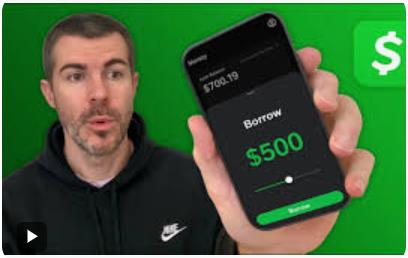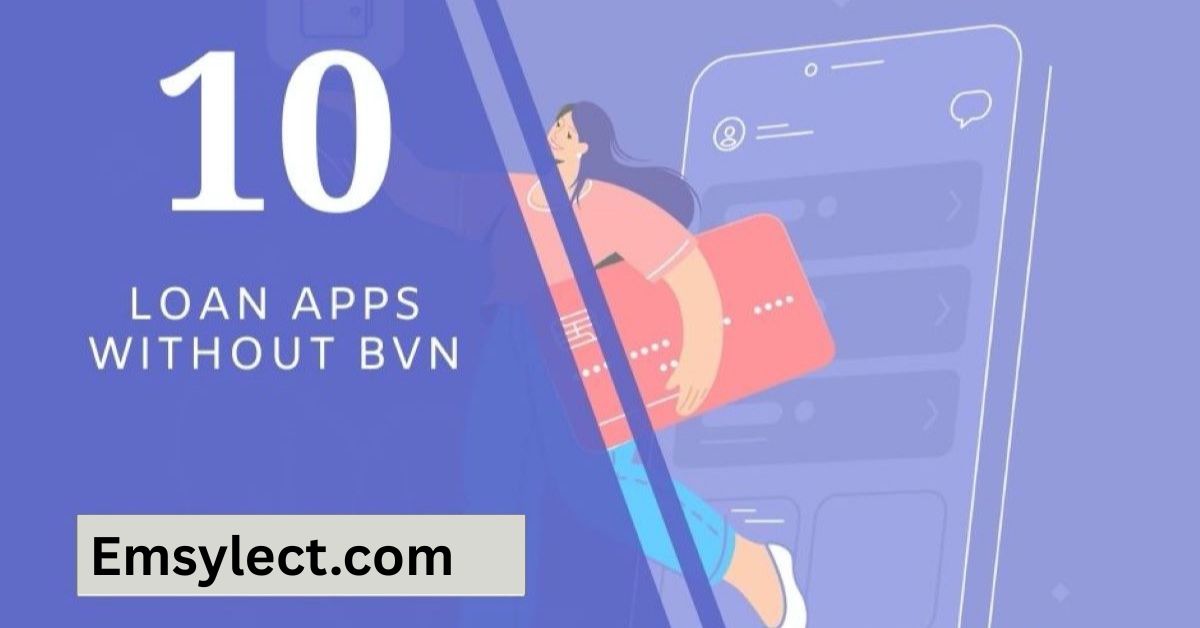Imagine needing cash urgently—perhaps for an emergency or a business opportunity—but the thought of bank queues and endless paperwork stops you cold. What if you could secure a loan in minutes without sharing your Bank Verification Number (BVN)? That’s the promise of a loan app without BVN, a growing trend in Nigeria’s fintech scene. These apps offer a lifeline to millions, proving that quick, accessible funding is possible even without the standard identity verification most lenders demand. In fact, as mobile penetration soars, these platforms are reshaping how Nigerians borrow, bypassing traditional hurdles. But before you dive in, are they as safe as they seem? Let’s explore what these BVN-free loan apps are, how they work, and what you need to watch out for. Ready to uncover the truth? Read on!
What’s BVN, and Why Do Loan Apps Want It?
First things first, let’s talk about BVN. If you’re Nigerian, you’ve likely come across this term. BVN stands for Bank Verification Number. It’s an 11-digit number tied to your identity, introduced by the Central Bank of Nigeria (CBN) back in 2014. Think of it as your financial fingerprint—it’s unique to you, linked to your biometric info (like fingerprints or a photo), and connects all your bank accounts under one ID.
Why do loan apps care about it? Simple. It’s their way of making sure you’re you. When you apply for a loan, they use your BVN to:
- Verify your identity: No fake names or stolen IDs here.
- Check your credit history: Have you borrowed before? Paid back on time? They’ll know.
- Reduce fraud: It keeps scammers from running off with cash under someone else’s name.
For example, imagine you’re a lender. Wouldn’t you want to know if the person asking for money is legit and can pay you back? That’s where BVN comes in—it’s a safety net for both the lender and the financial system. But here’s where it gets interesting: some folks don’t want to share their BVN. Maybe they’re worried about privacy, or they don’t have one yet. So, they start hunting for loan apps that skip this step. Do those even exist? Let’s find out.
The Hunt for Loan App Without BVN: Do They Exist?
Okay, let’s cut to the chase. Are there loan apps in Nigeria that don’t ask for your BVN? The short answer is… kind of. You’ll see some apps or websites claiming they offer loans without needing your BVN. Sounds tempting, right? But hold up—there’s a catch (isn’t there always?).
Most reputable loan apps—like Carbon, Branch, or FairMoney—do require BVN. Why? Because they’re playing by the rules set by the CBN, which wants to keep the financial system secure. These apps might advertise “no collateral” loans, but BVN? That’s non-negotiable for them. It’s their way of staying legit and protecting their business.
Now, if you dig around online forums or shady corners of the internet, you might stumble across apps promising loans without BVN. Some might even say, “Instant cash, no BVN, no hassle!” But here’s the kicker: if they’re skipping BVN, they’re likely skipping other rules too. That’s a red flag. I mean, think about it—would you trust a lender who doesn’t care who you are? Probably not.
So, while these “no BVN” apps might exist, they’re often in a grey area. They could be unregulated, risky, or straight-up scams. Let’s explore what that means for you.

Challenges of Borrowing Without BVN
Alright, let’s say you find a loan app without bvn. What’s the downside? Turns out, there are a bunch of hurdles you might face. Here’s the lowdown:
1. Harder to Prove You’re Trustworthy
Without BVN, lenders can’t easily check your credit history. That’s like walking into a job interview with no resume—nobody knows if you’re reliable. To cover their backs, these apps might slap you with higher interest rates. Why? They’re taking a bigger risk on you, so they charge more to make up for it.
2. Stricter Terms
No BVN? No problem—for them. But they might hit you with shorter repayment periods or bigger penalties if you’re late. Imagine borrowing ₦50,000 and having to pay it back in two weeks with crazy interest. That’s a debt trap waiting to happen.
3. Fraud Risk Goes Up
Here’s a scary thought: without BVN, it’s easier for someone to pretend to be you and borrow money in your name. And if the app doesn’t care about verification, they’re probably not too picky about who they lend to. That’s a recipe for chaos.
4. Shady Apps, Shady Practices
Most legit apps follow CBN rules, which include using BVN. If an app skips it, they might be dodging other regulations too. That could mean hidden fees, insane interest rates (think 50% or more), or even selling your data to the highest bidder. Yikes.
Real talk: I heard about a guy named Tunde who used one of these apps. He got ₦20,000 fast, no BVN needed. Sweet deal, right? Nope. Two weeks later, they demanded ₦35,000 back. When he couldn’t pay, they started texting his family, calling him nonstop. Total nightmare. That’s the kind of mess you might step into without BVN.
The Risks: Why Skipping BVN Could Backfire
Let’s get real for a sec. Borrowing from a loan app without BVN isn’t just tricky—it’s risky. Here’s why you should think twice:
Predatory Lending
Unregulated apps love to prey on desperate folks. They lure you in with “easy loans,” then hit you with terms that’d make a shark blush. Ever heard of loan apps charging 100% interest in a month? It happens.
Data Privacy Nightmare
When you sign up for an app, you hand over personal stuff—your name, phone number, maybe even bank details. Without BVN and proper regulation, who knows where that info ends up? Scammers could use it to drain your accounts or harass you.
No Legal Backup
If a legit app screws you over, you can complain to the CBN or consumer protection folks. But an unregulated app? Good luck. They might disappear overnight, leaving you with debt and no one to call.
Fraud on Both Ends
Not only could you get scammed, but these apps might not care if you’re a scammer. That opens the door to identity theft and fake loans, which messes up the whole system.
Picture this: You borrow ₦30,000 from a sketchy app. They don’t ask for BVN, so you think you’re golden. Then they vanish, but your phone starts blowing up with debt collectors claiming you owe ₦60,000. Sound far-fetched? It’s not. Stories like this pop up all the time in Nigeria.

Are There Legit Ways to Get a Loan Without BVN?
Now, you might be thinking, “Okay, I get the risks, but I still don’t want to use my BVN. Any legit options?” Fair question! There are a few possibilities, but they’re not as simple as downloading an app. Check these out:
1. Microfinance Institutions (MFIs)
Some MFIs cater to people without BVN, especially in rural areas where banking isn’t big. Instead of BVN, they might ask for a group guarantee—think of it like a community vouching for you. You borrow as a team, and everyone’s on the hook to pay back.
2. Peer-to-Peer (P2P) Lending
P2P platforms connect you with regular people who want to lend money. Some might skip BVN and use stuff like your job history or a guarantor instead. But heads up—these loans can be small, and you’ll need to prove you’re solid.
3. Techy Alternatives
A few apps experiment with fancy tech, like facial recognition or biometric scans, to verify you without BVN. It’s not common yet, and it’s not as secure as BVN, but it’s out there.
4. Collateral-Based Loans
If you’ve got something valuable—like a car or land—some lenders might skip BVN and take that instead. If you don’t pay, they keep your stuff. Risky move, but it’s an option.
Here’s the deal, though: these alternatives aren’t as fast or easy as BVN-based apps. You might need to jump through hoops, and the loan amounts could be tiny. Plus, reputable lenders still prefer BVN—it’s the gold standard for a reason.
Legal Stuff: What the Rules Say
Let’s talk law for a minute. The Central Bank of Nigeria runs the show when it comes to money matters, and they’re strict about BVN. It’s not just a suggestion—it’s a mandate. Every financial institution, including loan apps, is supposed to use BVN to verify customers. Why? To keep things safe, transparent, and fraud-free.
So, if an app says “no BVN needed,” they’re likely breaking the rules. That’s bad news for them—and for you. Here’s why:
- Unregulated = Trouble: If they’re dodging BVN, they might be dodging other CBN guidelines. That means no oversight, no consumer protection, nada.
- Illegal Operations: The CBN has shut down shady loan apps before. If you’re borrowing from one, you could get caught in the crossfire.
- No Safety Net: Regulated apps have to follow fair lending laws. Unregulated ones? They can do whatever they want—charge crazy rates, harass you, you name it.
For example, in 2022, the CBN cracked down on illegal loan apps, freezing their accounts and warning Nigerians to steer clear. Borrowers who used those apps were left hanging, some with debts they couldn’t dispute. Moral of the story? Stick to the legit stuff.
How to Protect Yourself If You Go Loan App Without BVN
Alright, let’s say you’re dead-set on a loan app without BVN. How do you stay safe? I’ve got your back with some practical tips:
1. Do Your Homework
Before you download anything, Google the app. Check reviews on Play Store, Twitter, wherever. If people are screaming “scam!” or “they stole my money!”—run.
2. Read the Fine Print
Those terms and conditions? Yeah, they’re boring, but read them. Look for:
- Interest rates (is it 5% or 50%?)
- Repayment deadlines
- Late fees
- What happens if you default
3. Check Their License
Legit apps brag about being CBN-approved. If they’re silent about it, email or call them. No answer? Sketchy.
4. Guard Your Info
Don’t hand over your life story. If they don’t need BVN, they shouldn’t need your bank PIN either. Look for apps with encryption (that little lock icon in the browser).
5. Start Small
Test the waters with a tiny loan—say, ₦5,000. See how they handle it. If they’re cool, maybe try more. If they flip out over a late day, ditch them.
6. Watch for Scams
Got a random text saying “Loan without BVN, click here”? Don’t. It’s probably a trap to steal your details.
7. Keep Tabs on Your Credit
Check your credit report now and then (you can use apps like CRC Credit Bureau). Make sure no one’s taking loans in your name.
Quick story: My cousin Ada tried a no-BVN app once. She read the terms, started with ₦10,000, and paid it back fine. But when she went for a bigger loan, they asked for her contacts and started texting her boss when she was a day late. Lesson learnt—stick to the safe ones.
FREQUENTLY ASKED QUESTIONS
Renmoney. Renmoney has been around for a while and has a good reputation among lenders. …
Page Financials. Page Financials is another online lender with a history. .
Zitra Investments. Although Zitra Investments is the “new kid on the block”, the management team has acknowledged experience in Finance.
You’ll likely need a credit score in the Good range (670 to 739) or higher to qualify for a $20,000 personal loan with a competitive interest rate.
Conclusion
So, here’s the bottom line. Loan app without BVN sound nice—no fuss, no BVN, just cash. But the reality? Most legit apps want your BVN because it keeps everyone safe. If an app skips it, they’re probably cutting corners elsewhere, and that’s a gamble you don’t want to take. Higher rates, shady practices, and zero protection? No thanks.
If you’re desperate for a loan and don’t want to use BVN, there are options—like MFIs or P2P lending—but they’re not as quick or easy. Your best bet? Stick to regulated apps like Carbon or Aella, share your BVN, and sleep easy knowing you’re covered.
Before you tap that “apply” button on a loan app without bvn, take a sec. Research the app, double-check it’s legit, and make sure you’re cool with the terms. Your money’s too precious to mess around with. Got questions? Drop them in the comments—I’d love to help. And if this article saved you from a loan app disaster, share it with your crew. Let’s keep each other smart and safe out there!
